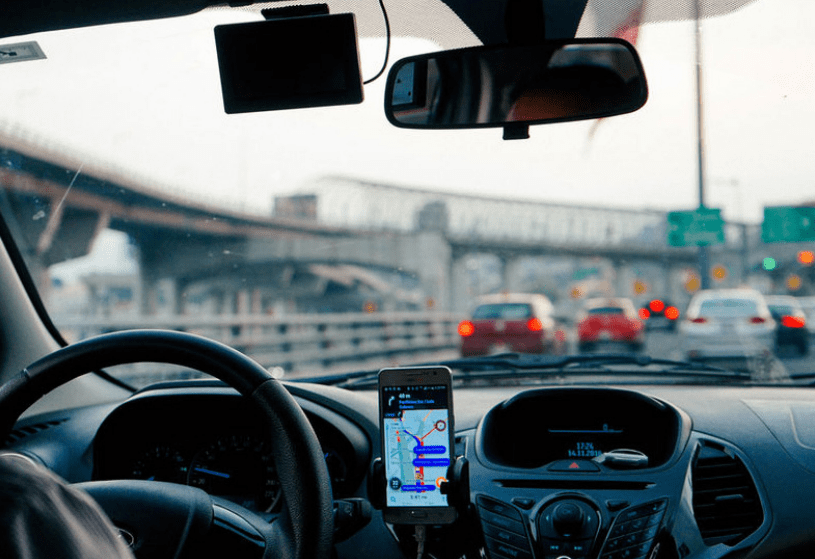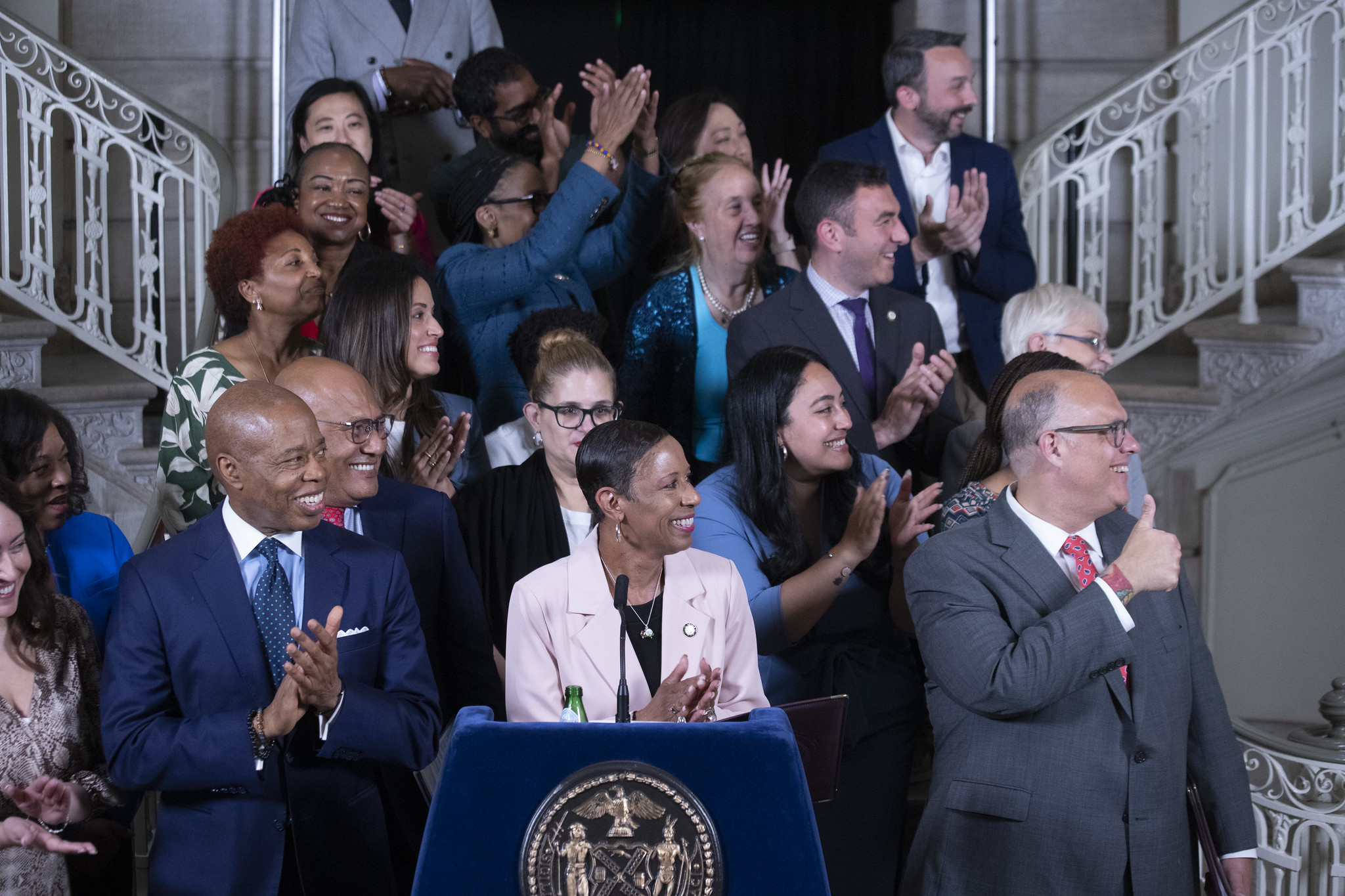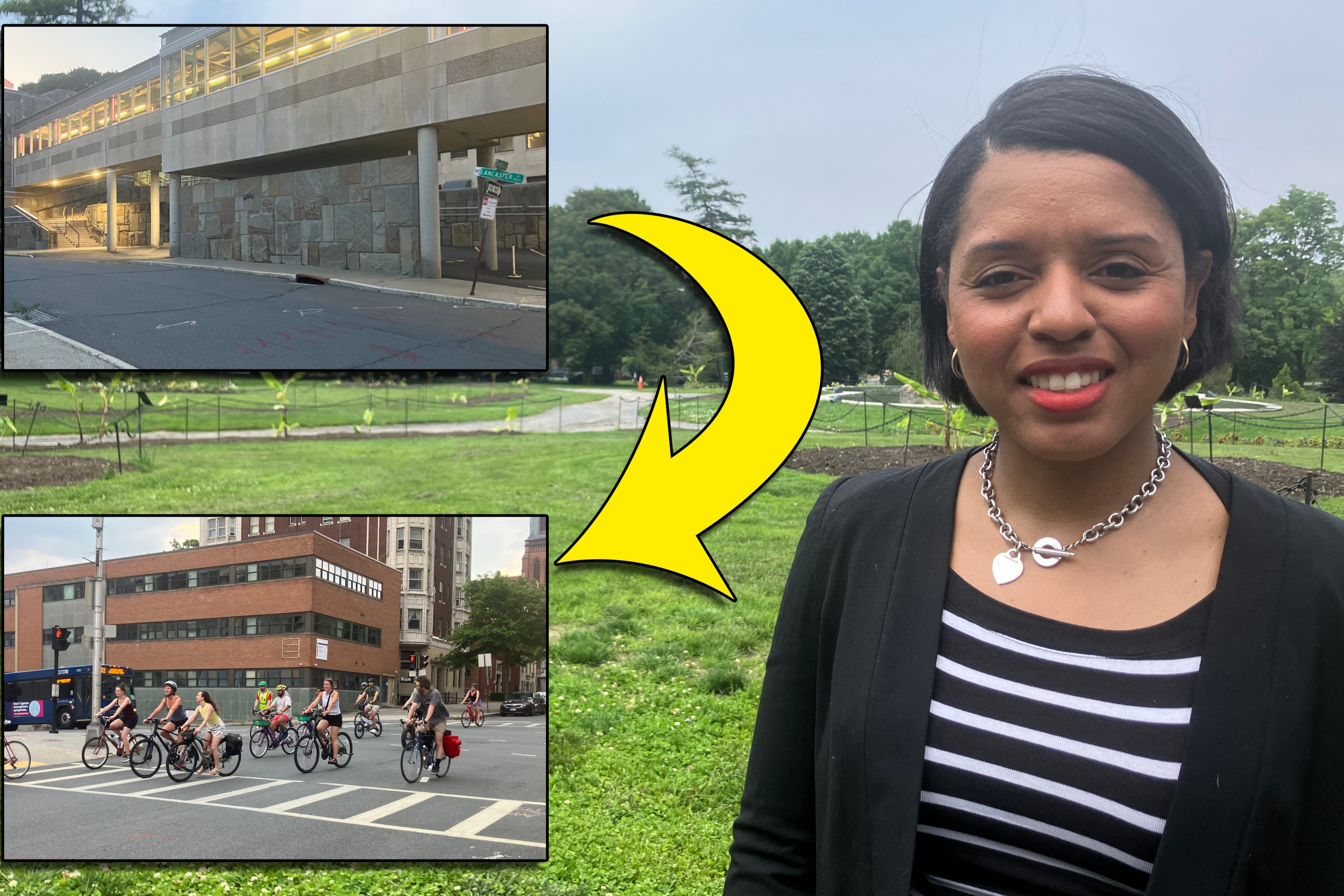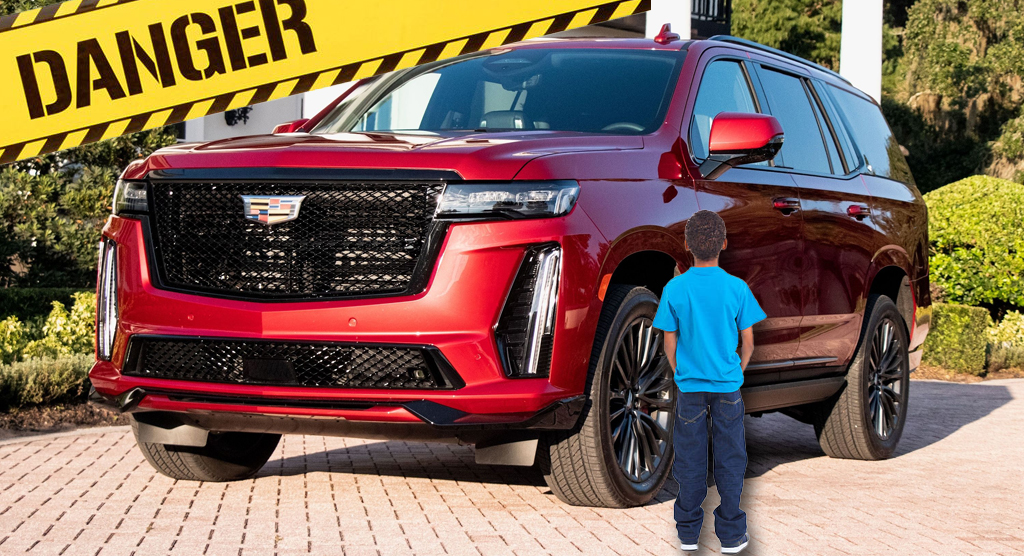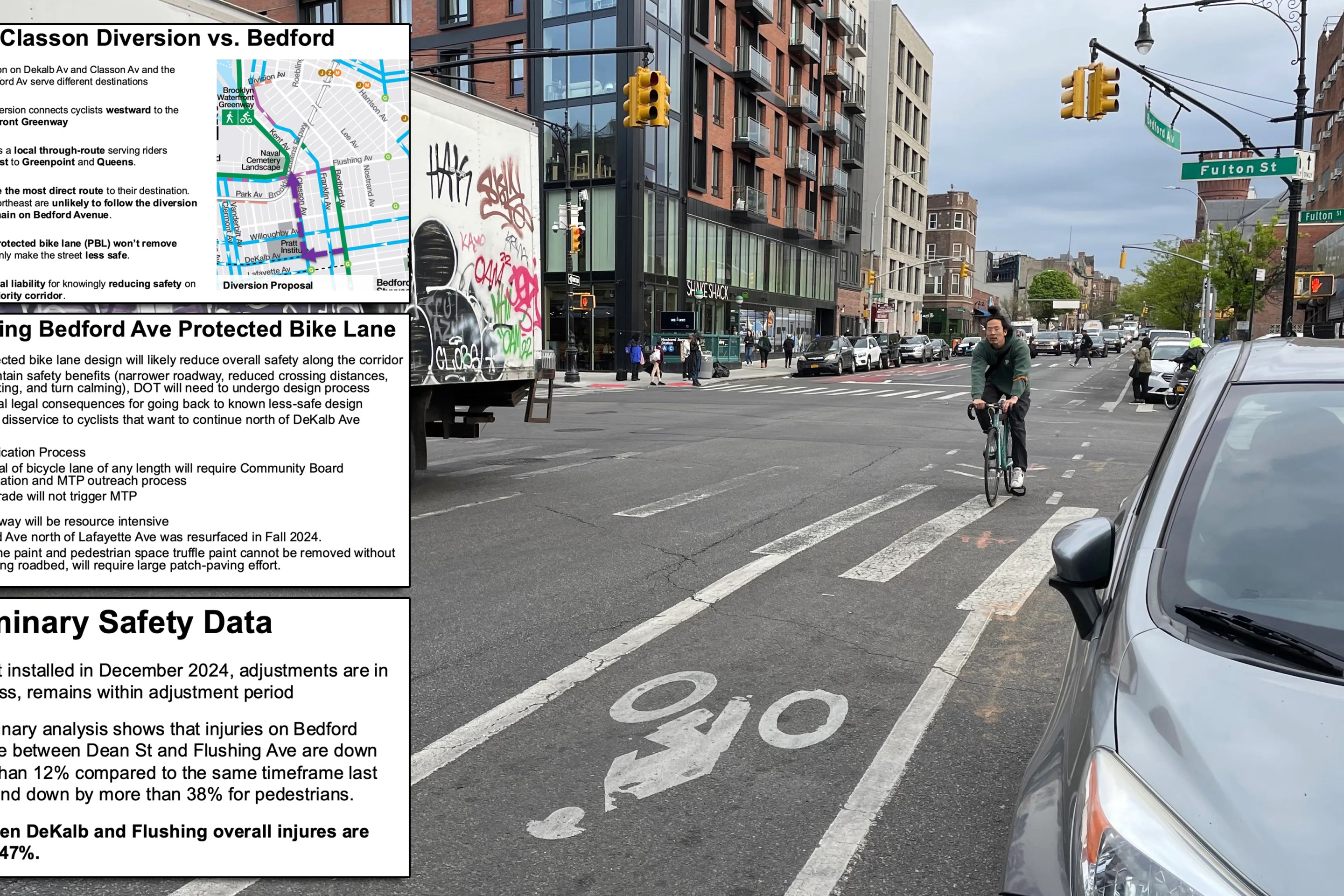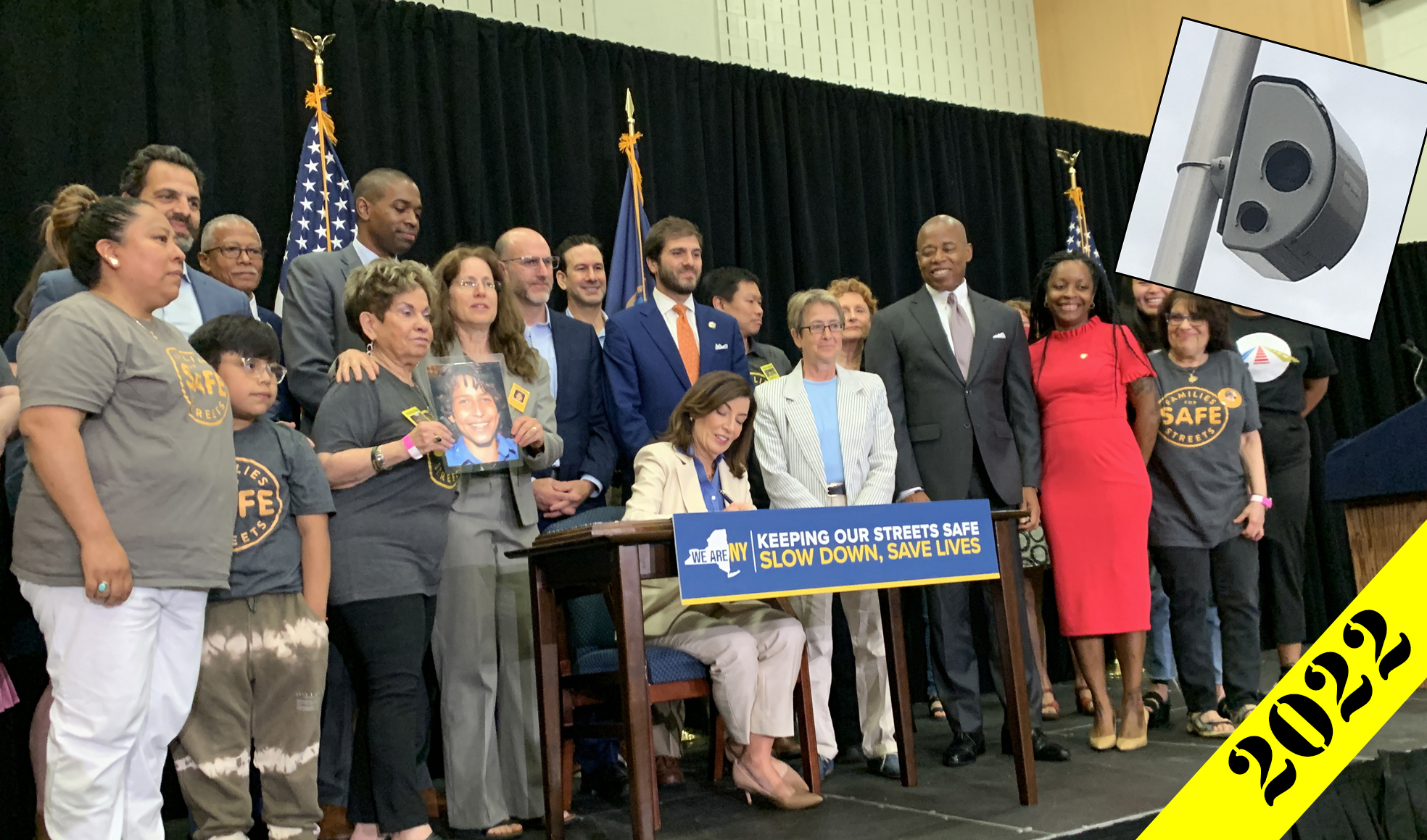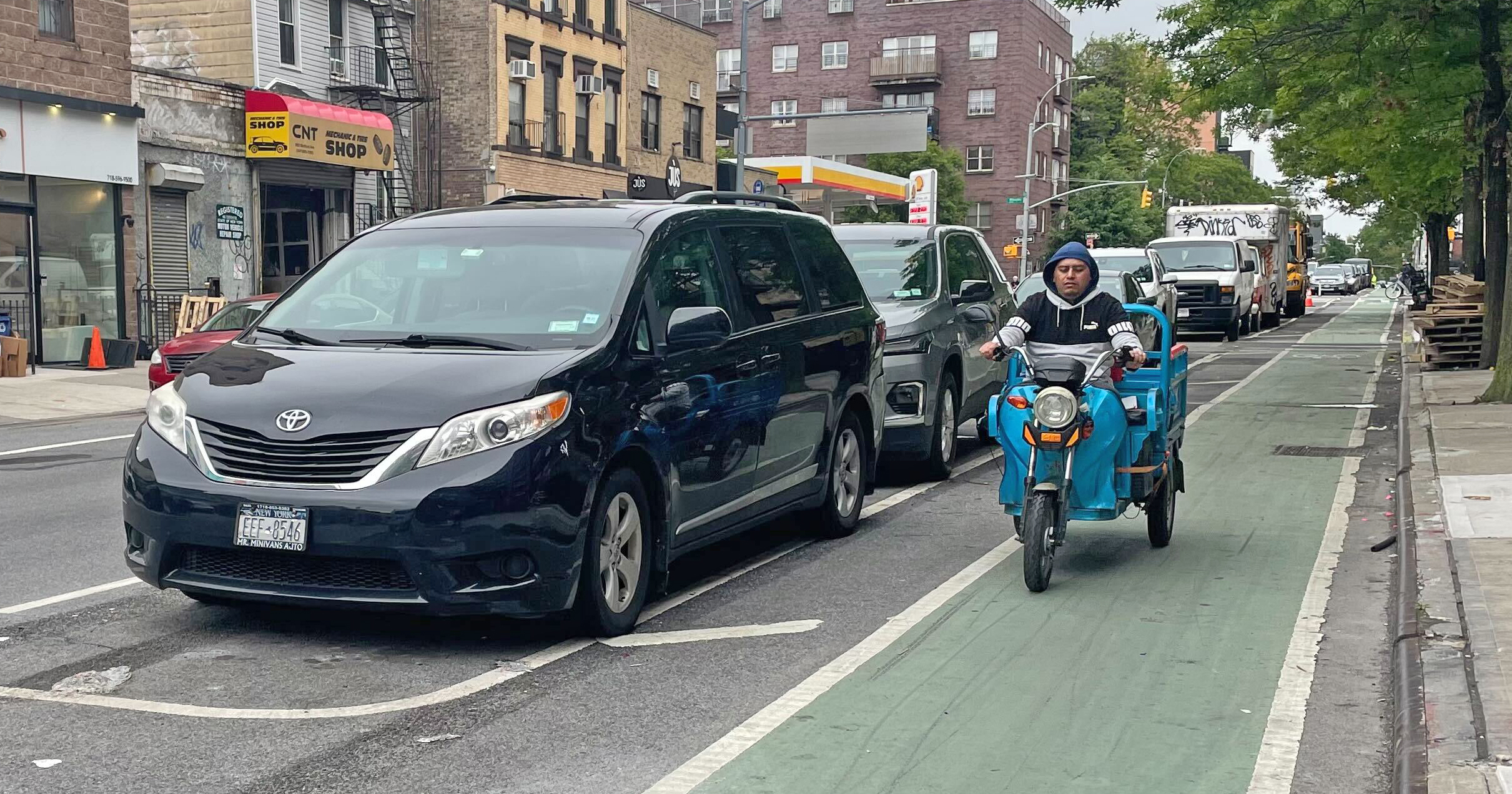The city's proposed cap on cruising times for app-based cabs is "arbitrary" and illegal because it supersedes the state's traffic-reduction regulations, and was concocted secretly without taking into consideration other factors, a new lawsuit by Uber argues.
The cab company's 97-page suit, filed in Manhattan Supreme Court on Friday, argues that congestion must be tackled by the state, not the de Blasio administration, which announced in June that it hoped to reduce traffic by requiring drivers to cut back the amount of time their cars roam the borough's central business district without any passengers in them. Uber has sued previously over the city's other cap on the number of vehicles it has on the road.
“Drivers’ flexibility is already being threatened by Mayor de Blasio’s regulations, and the cruising cap will only make that worse. This arbitrary rule used a flawed economic model, did not take into account how drivers are affected by previous regulations, is preempted by the state and was voted on despite the objection of City Councilmembers and community groups,” said Uber spokesman Harry Hartfield.
The city announced the new contested policy for Uber and other app-based companies like Lyft, Juno and Via in June and the Taxi and Limousine Commission voted to approve the cruising cap in August, which requires the for-hire-vehicle companies to reduce the amount of time they are empty below 96th Street from the current 41 percent to 31 percent. And if they don't, they'll be forced to pay hefty fines — up to nearly $1 million each month — or even have their operating licenses revoked, Deputy Mayor for Operations Laura Anglin said.
The four major cab companies together had more than 86,000 vehicles on the road as of this March, making up nearly 30 percent of the borough's overwhelming gridlock, and at the expense of yellow cabs, which saw a decline in its ridership, according to the city. Total cab rides in the city are up 62 percent in just over three years (chart below).
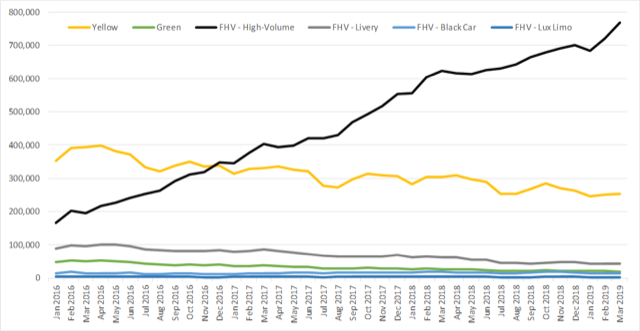
City officials said they hoped the cruising cap would eliminate some of the congestion and increase speeds during the evening rush hour by up to 10 percent — a hope which transportation expert Charles Komanoff previously called a pipe dream, saying the city would actually be looking at an increase of only 2.5 percent.
But regardless of how much the cap actually ends up increasing speeds, Uber says it violates state law because the state was already in charge of mitigating congestion in the city and had previously passed the long-studied plan known as congestion pricing — a toll on all drivers entering Manhattan’s congested central business district, which Uber says it has long supported.
"Prior to the City’s consideration of this Rule, the State had already begun to move forward with a phased and comprehensive plan to reduce congestion in New York City, which was based on extensive study," the suit alleges. "...it interferes with the State’s efforts to strike the balance of burdens and goals it views as most appropriate."
Uber says the city's cap is not only unachievable, but also that officials did not take congestion pricing into effect when coming up with it.
The suit also argues that the rule is "arbitrary," and accuses the TLC of refusing to hand over any of the documents upon which it based its economic model and came up with the cruising cap — Uber honchos argue in the suit that the city denied a freedom of information request for the documents.
"The TLC has deliberately withheld from the public, and from those wishing to comment on its rule, the complete picture of its economic model, upon which it says its rule relies. The underlying modeling and important outputs like trips, rider prices, and driver earnings were never disclosed," the suit says.
A mayoral spokesman denied Uber's charges.
"We will continue fighting for the people of New York City against a company that seeks to put profit first, and the people and drivers they serve last," said Seth Stein. "Extending this cap for at least the next year is not only legal, it will bring needed relief to congested streets and hardworking drivers. The city’s rules makes our streets safer and is in the best interest of all New Yorkers."
